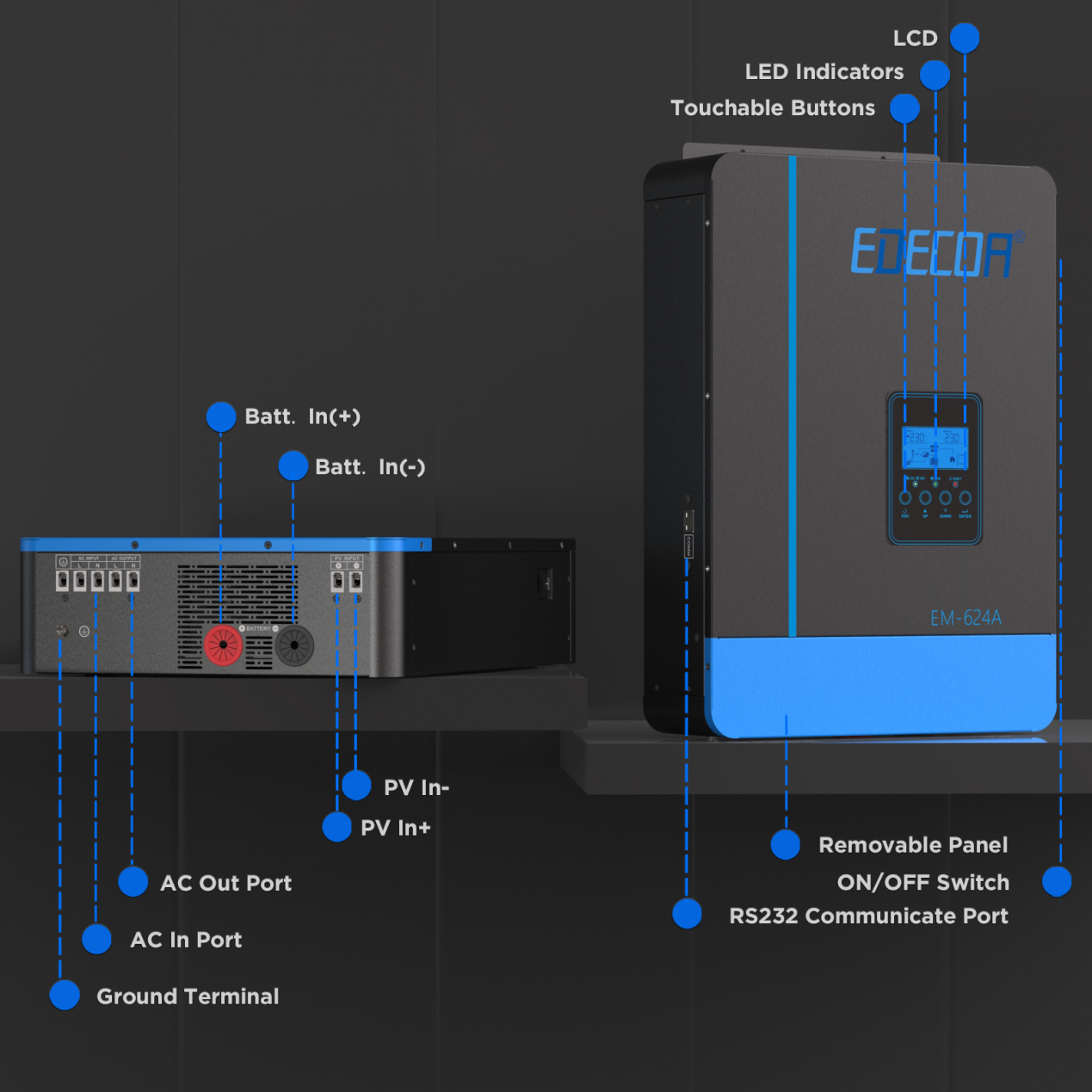What is the hybrid inverter?
A hybrid inverter is capable of simultaneously handling DC power from different energy sources and converting it into AC power. It can accept AC input, photovoltaic (PV) input, and battery input. The design of a hybrid inverter aims to improve energy utilization efficiency, reduce energy waste, and maximize the utilization of sustainable energy.
Difference between a hybrid inverter and a regular inverter:
- Multiple energy inputs: A regular inverter typically can only handle DC power from a single energy source, while a hybrid inverter can simultaneously handle DC power from multiple energy sources.
- Integrated functionality: A hybrid inverter usually integrates multiple functions such as maximum power point tracking (MPPT), energy storage and management, and intelligent control. The integration of these functions makes the hybrid inverter more intelligent and efficient.
- Energy conversion efficiency: The hybrid inverter optimizes the energy conversion process to improve energy conversion efficiency and reduce energy losses. In comparison, the efficiency of a regular inverter may be limited by the type of energy source.
Working process of hybrid inverter:
- Solar power generation: Solar panels convert sunlight into DC power and feed it into the hybrid inverter. These solar panels can be installed on rooftops or other suitable locations to capture solar energy.
- DC to AC inversion: The hybrid inverter receives the DC power from the solar panels and converts it into AC power. This allows the solar-generated electricity to be directly supplied to homes or other devices.
- Self-consumption: If the solar power generation is sufficient to meet the load demand, the off-grid hybrid inverter will prioritize supplying the electricity directly to the load devices, enabling them to operate self-sufficiently. This means there is no need to draw additional power from the grid.
- Energy storage management: If the solar power generation is insufficient to meet the load demand or during periods of no sunlight such as at night or on cloudy days, the hybrid inverter will store the excess electricity in a battery storage system. The stored energy in the battery can be used later to meet the demand of the load devices.
The hybrid inverter monitors the battery status and automatically controls the charging and discharging according to the demand.
When solar power is abundant, the inverter will prioritize charging the battery to store energy. When solar power is insufficient, the inverter will automatically draw power from the battery to maintain the load devices' operation.
For example, in a home solar power system with a hybrid inverter, the solar energy is converted into AC power and supplied to the electrical appliances in the home. If the solar power generated exceeds the household load demand, the excess electricity is stored in the battery for later use during the night or periods of low solar power generation.
At night or when solar power is insufficient, the inverter draws electricity from the battery to power the load devices. In this way, the off-grid hybrid inverter combines the functions of solar power generation, load supply, and battery energy management.
If you want to make full use of multiple energy sources and achieve efficient energy conversion, a hybrid inverter would be an ideal choice. When purchasing a hybrid inverter, it is recommended to choose high-quality products from reputable manufacturers based on your specific needs and budget. A hybrid inverter will bring greater flexibility, reliability, and sustainability to your energy system.



Share:
How do I choose between a 12V and a 24V inverter?
Do solar panels pollute the environment?